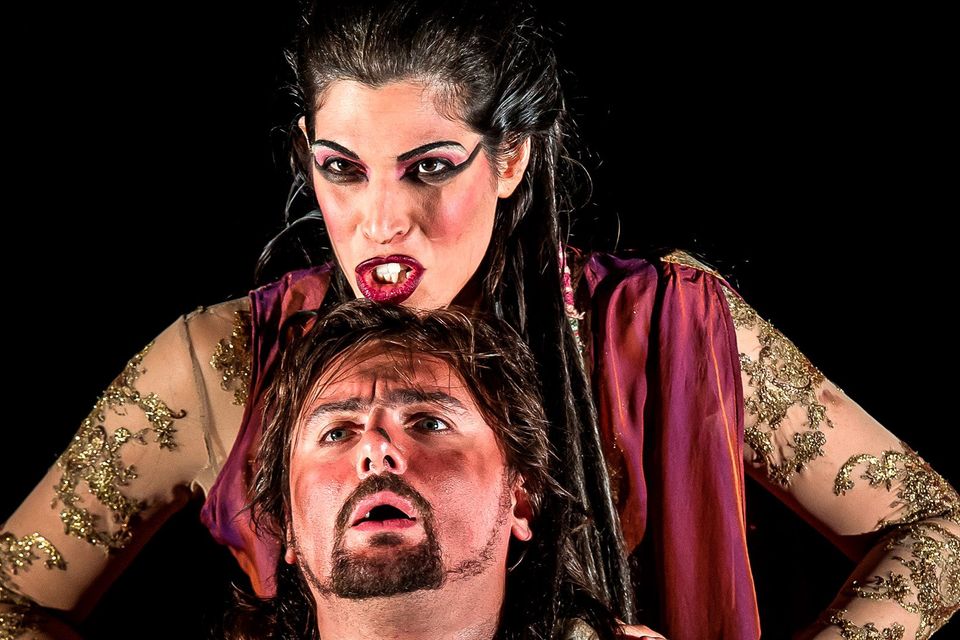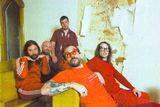Review: Wexford Opera Festival, Salome, National Opera House
Naama Goldman and Igor Golovantenko in Salomé by Antoine Mariotte. Photo: Clive Barda.
Oscar Wilde's 1893 French play Salomé fascinated two different composers - established German Richard Strauss and unknown Frenchman Antoine Mariotte.
Working independently, but simultaneously, Strauss was first past the post in Dresden in 1905. Mariotte's Lyon première came three years later. Strauss's masterpiece flourished internationally; Mariotte's efforts lay dormant for a century.
With its usual support for the underdog, Wexford unearths the Mariotte to both open its 63rd Festival and be the first work in its renamed National Opera House.
Undoubtedly interesting, Mariotte's Salomé is closer to Wilde's original than Strauss's translated version. There are sensible cuts but Mariotte remains as true to the play as need be. His music traverses a less individualistic path than Strauss, being influenced mainly by Massenet.
Mariotte, who came to music following a naval career, uses his orchestra quite beautifully but his instrumental colouring is more bronze than gold. His vocal writing appears to have a natural flow and the Wexford cast engages his lines with expansive expressiveness.
However, by the end of the relatively short evening - Wexford breaks the single act with an overlong interval - I am less than totally bowled over by Mariotte's efforts while I applaud this courageous revival.
Salomé comes under Rosetta Cucchi's direction in Tiziano Santi's burnt-gold designs and Claudia Pernigotti's Roman-occupied-Israel costumes even if Iokanaan's long coat looks out of kilter for the prophet of self-denial and penance.
Conductor David Angus, sympathetic to the task in hand, draws excellent responses from his Festival orchestra while he assuredly guides his sterling singers.
Mezzo Na'ama Goldman, in the title role, leads the cast sensuously even if her 'Dance of the Seven Veils' fails to excite much passion in Vittorio Colella's writhing choreography.
Nora Sourouzian is the vibrant Hérodias but the main vocal strengths come principally with Igor Golovatenko's gripping Iokanaan, Scott Wilde's stentorian Hérode and Eamonn Mulhall's short-lived Syrian.
Using a symbolic crown for Salomé's gory lust, Cucchi's production spares us the revolting spectacle of Salomé embracing the Baptist's severed head. Even so, I'll stick to Richard Strauss.
Join the Irish Independent WhatsApp channel
Stay up to date with all the latest news















